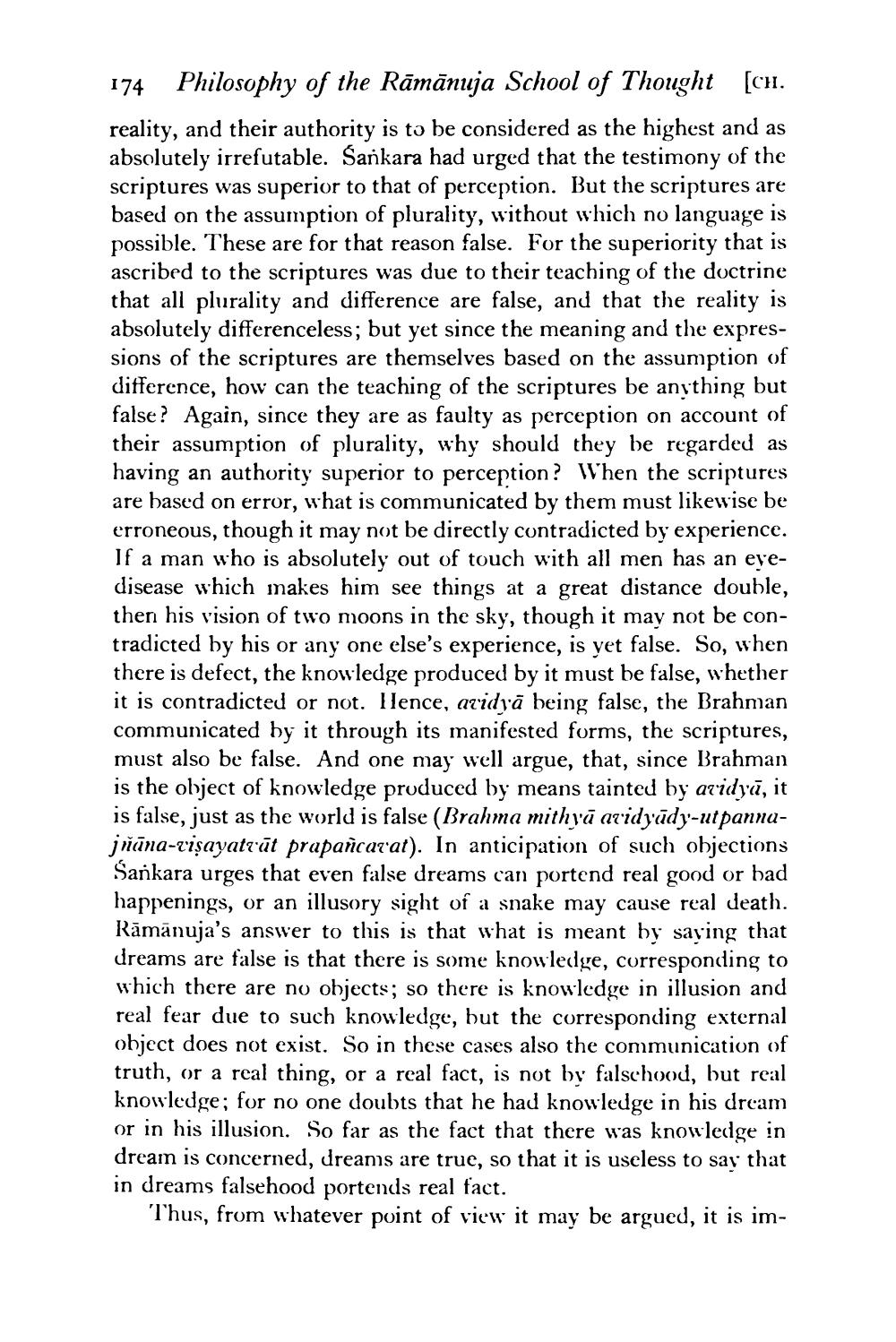________________
174 Philosophy of the Rāmānuja School of Thought [CH. reality, and their authority is to be considered as the highest and as absolutely irrefutable. Sankara had urged that the testimony of the scriptures was superior to that of perception. But the scriptures are based on the assumption of plurality, without which no language is possible. These are for that reason false. For the superiority that is ascribed to the scriptures was due to their teaching of the doctrine that all plurality and difference are false, and that the reality is absolutely differenceless; but yet since the meaning and the expressions of the scriptures are themselves based on the assumption of difference, how can the teaching of the scriptures be anything but false? Again, since they are as faulty as perception on account of their assumption of plurality, why should they be regarded as having an authority superior to perception? When the scriptures are based on error, what is communicated by them must likewise be erroneous, though it may not be directly contradicted by experience. If a man who is absolutely out of touch with all men has an eyedisease which makes him see things at a great distance double, then his vision of two moons in the sky, though it may not be contradicted by his or any one else's experience, is yet false. So, when there is defect, the knowledge produced by it must be false, whether it is contradicted or not. llence, aridyā being false, the Brahman communicated by it through its manifested forms, the scriptures, must also be false. And one may well argue, that, since Brahman is the object of knowledge produced by means tainted by aridyā, it is false, just as the world is false (Brahma mithrā avidyddy-ut pannajúūna-visayatrūt prapancatat). In anticipation of such objections Sankara urges that even false dreams can portend real good or bad happenings, or an illusory sight of a snake may cause real death. Rāmānuja's answer to this is that what is meant by saying that dreams are false is that there is some knowledge, corresponding to which there are no objects; so there is knowledge in illusion and real fear due to such knowledge, but the corresponding external object does not exist. So in these cases also the communication of truth, or a real thing, or a real fact, is not by falschood, but real knowledge; for no one doubts that he had knowledge in his dream or in his illusion. So far as the fact that there was knowledge in dream is concerned, Jreanis are true, so that it is useless to say that in dreams falsehood portends real fact.
Thus, from whatever point of view it may be argued, it is im




